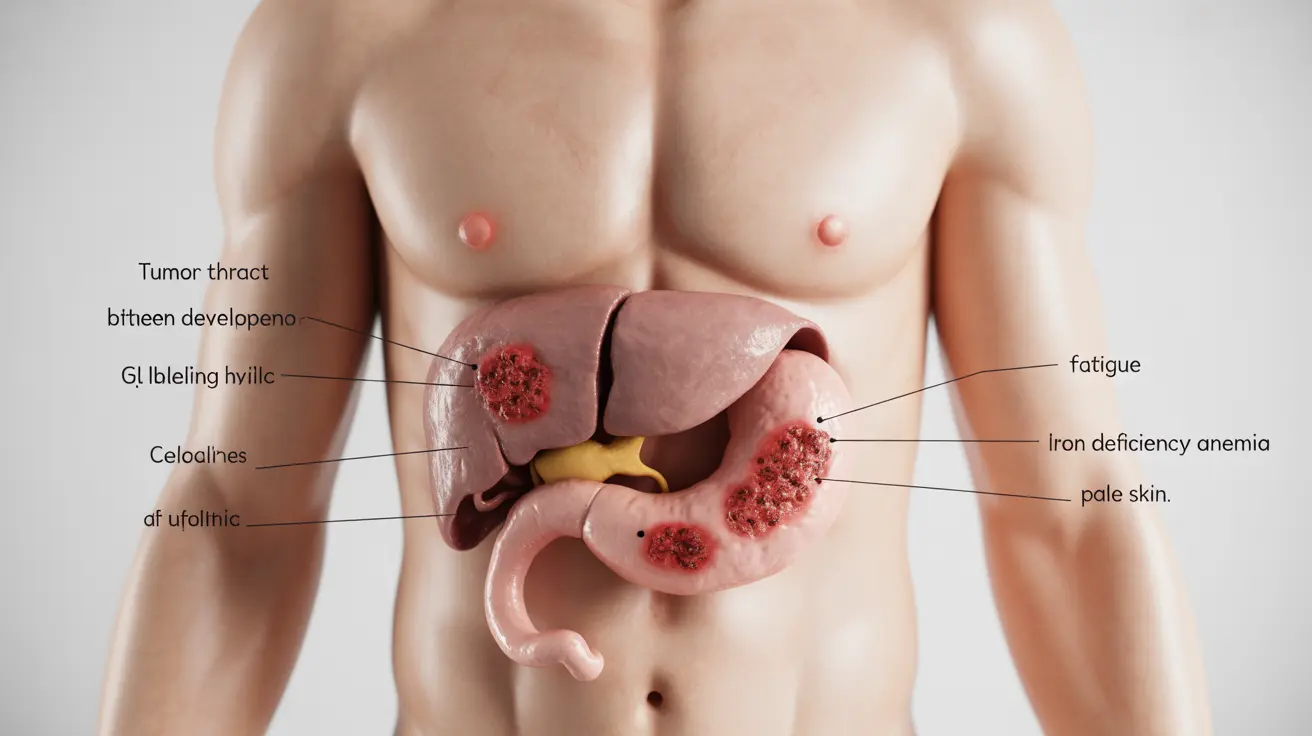Anemia and colon cancer share a significant connection that healthcare providers consider an important warning sign for colorectal malignancies. When patients develop unexplained anemia, particularly iron deficiency anemia, it may indicate the presence of colorectal cancer that requires immediate medical attention.
Understanding this relationship is crucial for early detection and improved treatment outcomes. This article explores the intricate connection between anemia and colon cancer, including how they're related, warning signs to watch for, and treatment approaches.
The Connection Between Anemia and Colon Cancer
Colon cancer can lead to anemia through several mechanisms, primarily through chronic blood loss from tumors in the digestive tract. These tumors can cause small amounts of bleeding that may not be visible to the naked eye but can result in significant iron loss over time.
Additionally, colon cancer can interfere with the body's ability to absorb iron and other nutrients essential for healthy red blood cell production, further contributing to anemia development.
Identifying Warning Signs and Symptoms
When anemia develops due to colon cancer, patients may experience a combination of symptoms related to both conditions:
- Unusual fatigue and weakness
- Shortness of breath
- Pale skin
- Dizziness
- Rapid heartbeat
- Changes in bowel habits
- Unexplained weight loss
- Dark or bloody stools
Diagnostic Process and Early Detection
Healthcare providers typically follow a comprehensive diagnostic approach when anemia is detected, especially in cases where colon cancer might be suspected:
- Complete blood count (CBC) testing
- Iron studies
- Colonoscopy
- Fecal occult blood testing
- Imaging studies
Treatment Strategies and Management
Treatment for anemia in colon cancer patients requires a dual approach that addresses both conditions simultaneously. The primary focus is typically on treating the underlying cancer while managing anemia symptoms to improve quality of life.
Managing Anemia
Common treatments for anemia may include:
- Iron supplementation
- Blood transfusions
- Erythropoiesis-stimulating agents
- Vitamin B12 supplementation if needed
Addressing Colon Cancer
The cancer treatment plan typically involves:
- Surgery to remove tumors
- Chemotherapy
- Radiation therapy
- Targeted therapy options
- Regular monitoring and follow-up care
Impact on Prognosis and Recovery
The presence of anemia can significantly affect a patient's cancer treatment journey. Managing anemia effectively is crucial for optimal treatment outcomes and quality of life during cancer therapy.
Frequently Asked Questions
What are the common symptoms of anemia caused by colon cancer?
Common symptoms include fatigue, weakness, shortness of breath, pale skin, and dizziness. These may be accompanied by digestive symptoms like changes in bowel habits and dark stools.How does colon cancer lead to iron deficiency anemia?
Colon cancer can cause chronic blood loss through bleeding tumors and interfere with iron absorption in the digestive tract. This combination leads to iron deficiency and subsequent anemia.Why is anemia often an early sign of colorectal cancer?
Anemia frequently occurs early in colorectal cancer because tumors can cause slow, chronic bleeding before other cancer symptoms become apparent. This makes anemia an important early warning sign.What are the treatment options for anemia in patients with colon cancer?
Treatment options include iron supplementation, blood transfusions, erythropoiesis-stimulating agents, and addressing the underlying cancer through surgery, chemotherapy, or radiation therapy.How does anemia affect the prognosis and treatment outcomes of colon cancer?
Anemia can impact treatment effectiveness and patient quality of life during cancer therapy. Managing anemia effectively is crucial for optimal treatment outcomes and may improve overall survival rates.




